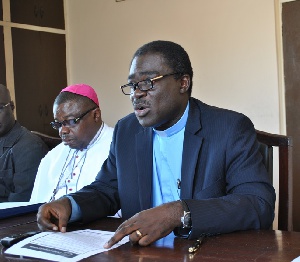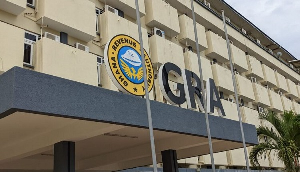As part of ongoing deliberations to address issues of perceived religious discrimination in the country, the National Peace Council and other stakeholders from all religious backgrounds, are proposing that parents be given the free will to select schools that they believe will allow their wards to practice their religion without any hindrance.
This was part of a 10-point communiqué issued at the end of deliberations held in March, to address issues of religious discrimination particularly in schools and other public places.
The ten point communiqué according to the National Peace Council which led the deliberations, will need the inputs of the Ministry of Education and the Ghana Education Service on the way forward.
Explaining this proposal in an interview with TV3's Edward Kwabi, the General Secretary of the Christian Council of Ghana, Rev. Dr. Kwabena Opuni Frimpong, noted that these proposals were critical to building a much stronger society where everyone's beliefs are tolerated.
He said "Ghana is a secular nation and so people must freely be allowed to practice any religion they want to identify with. But by so doing, there should not also be any imposition of faith or religion on anybody. And we think that is the challenge confronting us at the moment".
"Looking for the way forward, we are saying that we have three levels of schools in Ghana; we have pure Government or public schools; we have mission schools that are assisted by government; and then we have purely private schools. Parents must be free to choose where they want their children to be educated. We are saying that in the public schools, we must work out things such that the Ghana Education Service (GES) must come out with policy guidelines on faith matters, religious symbols, codes of dressing and all that".
"But we must also revisit the computer selection programme because people are finding themselves in schools that they have not selected. A Muslim finds herself in a Christian school when that student may have chosen TI Ahamadiya, but finds herself in a Catholic or Anglican school. So we either consider going back to the old system where parents were free to choose any school they wanted for their wards or we now regroup the schools into pure government schools, mission schools, Christian or Muslim schools and private schools so that when people don't even get their first choice they can still settle on any of these specified institutions. This will let people know where they are going, so that you don't get there and complain that they don't want to be educated in a particular environment".
When he was questioned about the fact that some students and parents prefer particular schools on the basis of academic performance rather than religious preferences, Rev. Frimpong-Manso explained that in such cases where parents choose schools which do not conform to their children's religious beliefs, that student cannot complain about religious discrimination.
Reverend Frimpong-Manso is of the view that the current system does not give parents and students the free will to make a choice as to where they want to be educated.
He is hopeful that the proposals which are being discussed dispassionately will mature into policies that will address the challenges of religious discrimination.
Regional News of Tuesday, 7 April 2015
Source: tv3network.com













